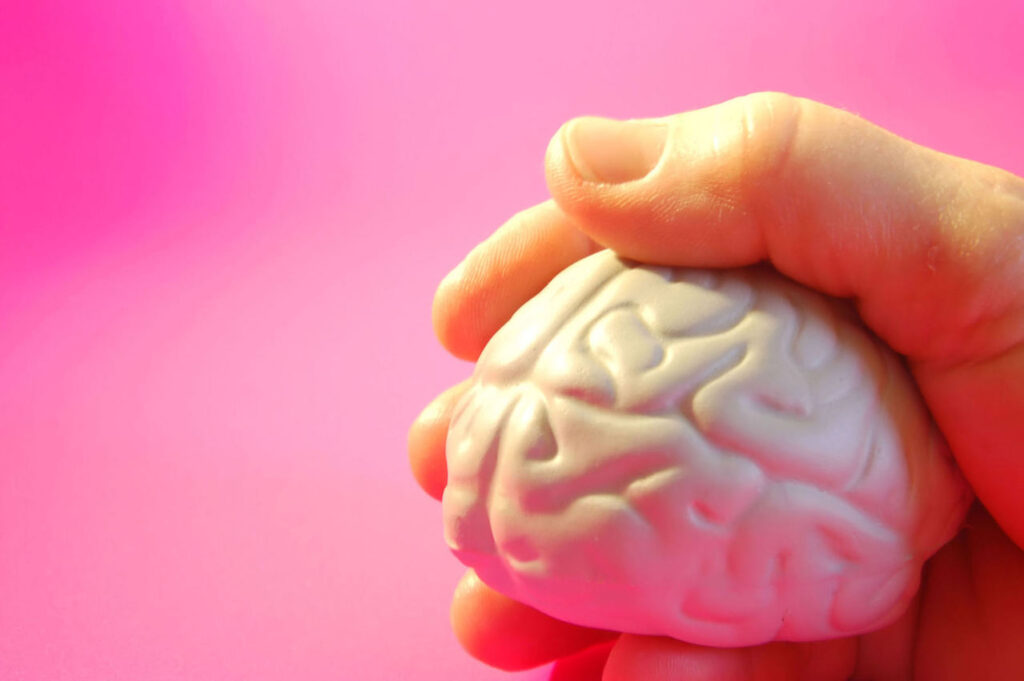The ReCode program according to Dr. Bredesen – Cure for Alzheimer’s disease is possible
To date, there is no effective drug to treat Alzheimer’s disease. The currently available drug treatment options are limited to acetylcholinesterase inhibitors and memantines, each of which is used depending on the stage of the disease and directly influences the action of neurotransmitters in the brain. It is hard to believe, but these pharmacological approaches are still based on the findings of the 1970s and 1980s.
Worse, the clinical benefit of these widely prescribed anti-dementia drugs is controversial, as the body can develop adaptive mechanisms and Alzheimer’s symptoms may progress even faster when the drugs are discontinued. Although numerous drug strategies have been attempted in the meantime, clinical trials were discontinued after (at the latest) phase II, because they did not show sufficient efficacy and therefore did not result in significant improvements in the symptoms of Alzheimer’s disease. Thus, the approval of Biogen’s most promising candidate ‘Aducanumab’ – an antibody against the amyloid-beta deposition in the brain – seems to be in great danger: An independent expert panel advising the FDA concluded that the documented benefit is too low and rejected the approval of ‘Aducanumab’.
But why have all pharmacological monocausal approaches failed so far?
As early as 2014, the US neurologist Dr. Dale Bredesen correctly recognised that Alzheimer’s disease is a generalised metabolic disorder, i.e. a disease with a variety of causes, which must also be addressed in its multitude when it comes to therapy. Above all, Bredesen showed that such a therapy is effective and that it is therefore possible!
As an analogy, Bredesen uses the image of a leaky roof through which it rains to imagine Alzheimer’s disease: there are up to 36 holes in the Alzheimer’s roof that need to be patched to make everything sealed again. Not every patient has the same holes, and therefore the protocol is customised based on the patient’s genetics, current health status and lifestyle.
Also in 2014, Bredesen’s therapy concept, called the ReCODE (‘Reversal of Cognitive Decline’) protocol, was first published in the scientific press. This novel therapy concept is a promising approach in the treatment of Alzheimer’s disease, as it follows a multifactorial strategy.
In the ReCode protocol, 6 different types of Alzheimer’s disease are defined according to the patient’s genetic variant of the ApoE gene (see KsD page – genetics), predominant symptoms and co-existing diagnoses:
- Inflammatory (“hot”);
- Atrophic (“cold”);
- Glycotoxic (“sweet”);
- Toxic (“vile”);
- Vascular (“pale”) and
- Traumatic (“dazed”).
Here, the specific type ultimately determines the therapeutic approach. The effect of each type-specific therapeutic strategy is assessed through a comprehensive cognitive examination, called cognoscopy, using blood tests, cognitive assessments, and other clinical biomarkers.
The fact that the Bredesen method is actually effective, and not an empty promise, has now been demonstrated in a large number of studies. In 2018, for example, Dr. Bredesen reported on 100 successfully treated patients in whom the symptoms of Alzheimer’s disease had progressed to varying degrees, from mild to moderate cognitive impairment.
Through measures such as:
- Identification and treatment of pathogens
- Repairing a permeable intestinal mucosa (“leaky gut”) and improving the microbiome
- Identification of insulin resistance and restoration of insulin sensitivity
- Identification and correction of suboptimal nutrient, hormone, or neurotrophin support (neurotrophins are endogenous signaling substances that cause targeted nerve cell connectivity; e.g.: BDNF)
- identification of toxins and their elimination by detoxification
He succeeded not only in slowing down or stopping the course of the disease, but also in improving the symptoms!
However, it was also apparent in this study that the earlier the stage of the patient’s disease, i.e. the earlier the treatment took place, the better the therapeutic success. This is also a challenge, since Alzheimer’s disease, which can take decades to develop, is often diagnosed at an advanced stage when patients are no longer able to act.
If you want to know more about the details of this exciting topic, please visit KsD page.
Conclusion:
There is still no effective drug against Alzheimer’s disease, but with the multifactorial therapeutic approach of US neurologist Dr. Dale Bredesen, a treatment concept is finally available that enables individualized therapy for Alzheimer’s patients. This so-called ReCode protocol has been successful in halting and even reversing the course of the disease in early-stage Alzheimer’s patients. This gives a lot of courage and hope and proves that Alzheimer’s disease is not an unavoidable fate! But don’t forget: the earlier the treatment is started, the better the result. So also with Alzheimer’s the principle applies: Better act in time before it is too late!
You can find the Bredesen literature under our book recommendations.
References:
- DE Bredesen (2014) Reversal of cognitive decline: A novel therapeutic program. Aging, Vol 6, 9
- DE Bredesen et al (2018) Reversal of cognitive decline: 100 patients. J Alzheimers Dis Parkinsonism 8, 5





